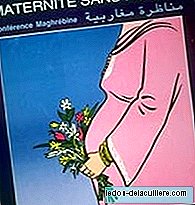
In the XIV Symposium of Anesthesiology, Resuscitation and Therapeutic Pain that was held at the Hospital del Mar in Barcelona, Dr. Pilar Ariño put on the table the aspects that health specialists should take into account, especially in pregnancy and childbirth, due to immigration, because cultural principles are different depending on the country of origin.
Simply the tests to which a pregnant woman is subjected in Spain are not understood by many women, since in her country the gestation develops without going to any medical center. Anesthesia and obstetric analgesia are issues to consider in hospitals with the collective from Morocco, Afghanistan or India among others, as they reject it, since they relate it to caesarean section.
There are also cultures in which the application of anesthesia makes them feel guilty, since it represents cowardice. It is understood that childbirth causes pain and many women manifest it even if they do not suffer it, in the case of Maghreb women, they shout a lot during labor, although they have been given anesthesia, as it goes with their culture, it is a form of Show your husband what you suffer for him. Although the Hospital del Mar conducted a study with more than 200 African, Asian, American and European women, concluding that the majority of women accept the use of anesthesia in childbirth, it is the less knowledge there is, the moment you have distrust.
To all this we must add that there are many women who do not learn the language, they can not explain the evidence or why different medical applications. That is why cultural mediators are very important, says Dr. Ariño, so that there is mutual understanding of culture and medical procedure.
Home births, technical births, births with pain or without pain, each country has its culture in all aspects and each mother must be free in choosing how to give birth to her child.












